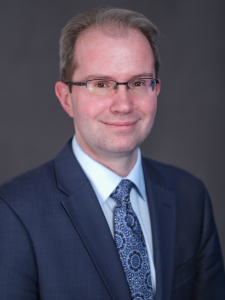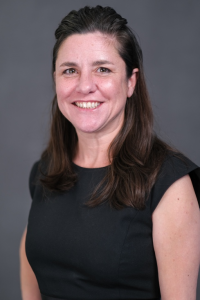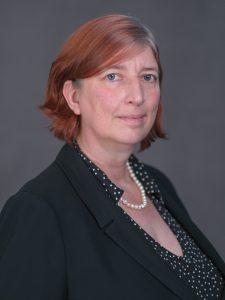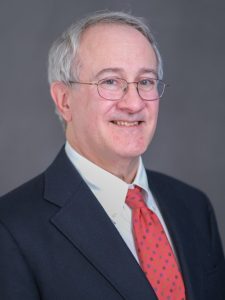President and CEO Frederick Kempe also announced high-level Atlantic Council GeoTech Commission; taps top technologist David Bray as founding director
WASHINGTON, DC—The Atlantic Council today launched the GeoTech Center, whose role will be to provide greater understanding of emerging technologies and to develop strategies and policies to ensure the use of “technology for good” among individuals, societies and the international community. The Center will focus on the impact of data and machine learning, personalized medicine, additive manufacturing, nanotechnology, green energy, commercialization of space, robotics, synthetic biology, and other new technologies on the horizon. The center is being launched with support from founding partners Accenture, SICPA, The Rockefeller Foundation, and Carnegie Mellon University, as well as corporate supporter Amazon Web Services (AWS).
“We are living in a time of rapid change, where new technologies like AI, blockchain, cloud computing, quantum computing and extended reality are changing how people work and live.”
Atlantic Council President and CEO Frederick Kempe also announced the launch of the GeoTech Commission, a high-level group of experts that will study the trajectories of new technologies and report on policy actions to ensure the most beneficial outcomes for people, prosperity, and peace. The commission’s honorary co-chairs will be a bipartisan group of four leading members of the United States Congress: Senator Mark Warner (D-VA), Senator Rob Portman (R-OH), Rep. Suzan DelBene (D-WA), and Rep. Michael McCaul (R-TX). The commission’s report, which will be released later this year, will be timed to inform policy makers, legislators, and the general public in conjunction with US elections in November.
The GeoTech Center will be directed by David Bray, a leading technology strategist and public servant. Bray’s rich background ranges from private sector experience as a strategist for startups to US government positions that have included work at the Centers for Disease Control leading tech responses to the September 11 and anthrax attacks, as well as SARS. He also served as a senior advisor to the Department of Defense in Afghanistan and as executive director for the National Commission for the Review of Research and Development Programs of the US intelligence community. He most recently served as executive director of the People-Centered Internet coalition.
Subscribe for updates
Sign up to learn more about the GeoTech Center
“The next generation of technological change will have a more dramatic impact on how individuals live and work, how economies operate and how nations interact than any that has come before it,” said Kempe. “We hope that our new GeoTech Center, benefitting from the rich business and government experience of David Bray, will help us more successfully navigate a disruptive period ahead. Our aim will be to work with the Atlantic Council’s global community so that we can better tap the breathtaking potential of these new technologies to do good while at the same time recognizing the need to manage the inevitable downsides of such revolutionary change.”
Said Bray, “New technologies and data are tools. It is upon the choices we make, both as individuals and as communities, that ensure that they are used as a force for good in the world—and through the efforts of the new center and commission, we plan to help define what measurable good outcomes include. In a time of global turbulence and polarization, our mission is more important than ever. The GeoTech Team will champion positive paths for new tech and data that benefit people, prosperity, and peace globally.”
The GeoTech Commission will be comprised of a select group of prominent leaders from the private sector, academia, and government. Working together, the commissioners will explore how societies and markets characterize new technologies and data choices and their benefits to people, prosperity, and peace. The commission will also study how overall adoption of beneficial new technologies and data initiatives can be accelerated regionally, nationally, and globally. Aside from its congressional honorary chairs, its co-chairs will be John Goodman, Chief Executive Officer of Accenture Federal Services, and Teresa Carlson, Vice President of Worldwide Public Sector at AWS.
“We are living in a time of rapid change, where new technologies like AI, blockchain, cloud computing, quantum computing, and extended reality are changing how people work and live. We see public and private sector leaders focused on harnessing the impact of these technologies for their customers, their organizations, and their workforce,” said John Goodman, Chief Executive Officer of Accenture Federal Services. “Together, these innovations have broader implications on national security, economic competitiveness, and the vitality of society. Bringing together leaders across the public and private sectors to go beyond understanding these changes and working together to chart a path forward to make a positive impact in the world is why Accenture is proud to be a founding partner of the GeoTech Center.”
“We are excited to work with the GeoTech Commission on these important topics,” said Shannon Kellogg, Vice President of AWS Public Policy for the Americas. “Cloud technology plays a key role in driving digital transformation, and allows people, organizations, and governments to be more efficient and agile in accomplishing their missions and reinventing citizen services and experiences.”
The GeoTech Center will benefit as well from a rich stable of fellows with a wide spectrum of expertise across different fields, including former Australian Prime Minister Malcolm Turnbull, the prominent British computer scientist Dame Wendy Hall, and Lord Tim Clement-Jones, digital economy spokesman of the United Kingdom’s Liberal Party. The GeoTech Fellows will help the center identify public and private sector choices affecting the use of new technologies and data and will recommend positive paths forward to help markets and societies adapt in light of technology and data-induced changes. They will also work closely with the Center to determine priorities for future investment and cooperation between public and private sector entities seeking to develop new technologies and data initiatives specifically for global benefit.
To learn more about the GeoTech Center and Commission, please visit https://gtc.atlanticcouncil.org and follow its efforts on Twitter at @ACGeoTech. For media inquiries, please contact press@atlanticcouncil.org.

The GeoTech Center champions positive paths forward that societies can pursue to ensure new technologies and data empower people, prosperity, and peace.




